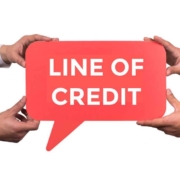What is the Difference Between a Business Line of Credit and a Business Credit Card?
The modern lending marketplace gives small business owners a bevy of options for financing or access to capital. While this is overall a great thing for business owners, it’s easy to get overwhelmed by the number of sometimes quite similar options in the marketplace. Specifically, most small business owners have probably asked themselves whether a business credit card or line of credit makes more sense for their business’ needs. Knowing the answer to that question actually takes more than knowing your needs; you also need to know the key benefits of and differences between the two products.
KEY TAKEAWAYS
- Business credit cards can help your business build good credit.
- Your business line of credit helps you access revolving financing on demand.
- Interest rates and your credit limit vary depending on the financial product.
- Using financing products responsibly is a great way to foster business growth.
WHAT ARE THE PRIMARY DIFFERENCES BETWEEN A BUSINESS LINE OF CREDIT AND A CREDIT CARD?
While a line of credit and a credit card serve mostly the same high-level purpose, access to drawable credit, there are several considerable differences between the two products. Learning about the unique qualities of each product can help your business pair up with that option that best fits your needs – both current and future..
Credit Limit
Depending on how large of a credit limit you need, a credit card or line of credit may make more sense for your business. The credit limit on a business line of credit are typically considerably higher than the average credit card. With lenders like Kapitus, you can access a business line of credit to borrow considerably larger sums.
Credit cards are designed for smaller, short-term purchases. For example, you can use a business credit card to make small purchases of incidentals or to cover a business dinner. On the other hand, lines of credit are ideal for larger investments, such as purchasing inventory, covering payroll or buying more expensive equipment.
Interest Rates
Interest rates are one of the most important factors to think about when taking up any financing product. Being aware of your interest rates is essential to running your business, and taking on a new financing product like a credit card or line of credit requires serious vigilance on the part of the business owner.
Interest rates can vary wildly between a business credit card or a business line of credit.
While credit cards often come with higher interest rates than lines of credit, and holding a balance on your credit card can quickly become very costly, you may be able to completely avoid paying credit card interest if you pay your balance in full at the end of each billing cycle.
With a line of credit interest is charged on the principal balance, but lines of credit often come with monthly maintenance fees, so even if you’re paying your balance in full there can still be that additional monthly cost.
Draw Period
Your draw period defines how long you can continue to borrow money after getting approved. Using a business credit card will enable you to continue to borrow for as long as your account is open and remains in good standing.
Lines of credit are a form of revolving financing with a fixed draw period. Your draw period depends on the lender, but it’s not uncommon for draw periods to last for two to three years and in some rare cases going out as far as five years.. You can continually borrow up to your credit limit during the active draw period.
Fees
Line of credit providers commonly charge origination fees that will typically range anywhere from 1-5%. In addition, some lenders may charge maintenance, draw, and late fees. It pays to speak to your lender before applying for a business line of credit to determine the full scope of fees you can be charged. Every lender has different criteria and every lender charges different fees, so be sure to compare options.
In contrast, business credit cards sometimes come with zero fees, whereas some could charge serious sums per year. Other fees can apply to your business credit card, including cash advance, over-limit, and foreign transaction fees and an annual fee for holding the card.
Payback Periods
The payback period is essentially another word for your billing cycle. The billing cycle determines how quickly you’ll need to make your initial repayments.
Most business credit cards have payback periods of 28-31 days, meaning you’ll need to repay what you borrowed before the end of the billing cycle to avoid being charged interest.
Lines of credit, on the other hand, can have repayment terms of daily, weekly, bi-weekly or monthly, depending on your agreement with your lender.
Added Perks
Credit card companies have become increasingly competitive in an attempt to pull in clients. This means that modern credit cards often come with a collection of incentive perks that, if used wisely, could become a big reason for choosing a business credit card over a line of credit. Some premium business cards tout their perks as a major bonus for becoming a client.
Some of the added extras available via your card could possibly include:
- An introductory APR
- Purchase protection
- Extended warranties
- Complimentary airport lounge access
- Reward points for cash back, gift cards and travel
Choosing a card based on perks alone doesn’t paint the full picture of what your experience with the card may be, of course. When choosing a credit card, think of perks as a bonus on top of terms that your company is already comfortable with.
Finding the Right Fit for Your Business
Finally, what if your business is looking to cut borrowing costs in the face of rising interest rates? With the right lender, a credit card may offer lower lending costs because of an introductory APR. However, you only stand to gain if you can pay off your outstanding debt before the end of the billing cycle. Further, introductory low APRs generally only last for the first year of using a card.
On the other hand, if you’re a more established business and need a revolving credit line to help cover larger unforeseen expenses or to cover some operating costs in a down period, a line of credit may be a better option for you.
It could also make sense, in some instances, for a business to have both a credit card for smaller everyday expenses and a line of credit as a “nest egg” or to cover those larger expenses.
WHAT ARE THE PROS AND CONS OF A BUSINESS LINE OF CREDIT?
Your business line of credit is a form of revolving credit that enables you to borrow generally larger amounts on demand for a defined drawing period.
Like all types of financing, there are pros and cons to your line of credit.
Pros of a Business Line of Credit
- Higher Credit Limits – Lines of credit enable you to borrow larger amounts over a specified period. It’s not inconceivable to borrow more than $10,000 as part of a single credit line.
- Repeated Access to Capital – Repay the outstanding balance, and you’ll have no problems continually borrowing large amounts against your credit line until it expires.
Cons of a Business Line of Credit
- Shorter Payback Period – Some credit lines have very short billing cycles, and you could be making payments on your balance daily or weekly.
- No Rewards – Unlike credit cards, there are usually no additional perks or earned points to getting approved for a line of credit.
- Potentially High Fees – Some lenders levy larger fees to maintain your line of credit. In some cases, the annual maintenance fees can outsize standard credit card fees.
WHAT ARE THE PROS AND CONS OF A BUSINESS CREDIT CARD?
While more than half of small business owners don’t have credit cards (meaning they often rely on long-term financing options), they shouldn’t be discounted as business credit cards can play a role in driving growth within your business.
To decide whether a credit card makes sense, here’s a rundown of the pros and cons of having one for your business.
Pros of a Business Credit Card
- Effective Credit Building – Regularly using your business credit card and paying the full monthly amount due will likely help improve your business credit.
- Rewards – Credit card rewards – like points – can be especially lucrative for businesses that regularly draw and restore large amounts of their credit. These rewards can sometimes be redeemed as direct cash back.
- Employee Cards – As the primary account holder, you can distribute secondary cards to your employees. This means that travel or other necessary expenses can be charged directly to your company card. This is both a big convenience for your employees and a good boost to your business image.
Cons of a Business Credit Card
- Qualification – Qualifying for a business credit card generally asks for a high credit score; this may be difficult for some newer businesses.
- Lower Credit Limit – Business credit cards often have lower limits compared to lines of credit. This means that if you plan on using your credit for larger purchases, you may find a credit card more difficult to manage.
- Personal Liability – Failure to repay could lead to personal liability, which could also damage your own credit history.
USE CASES FOR A BUSINESS CREDIT CARD VS. BUSINESS LINE OF CREDIT
Consider the following use cases to better understand whether a business credit card or line of credit may suit your needs.
Business Credit Card
| Use Case Example | |
| Build Credit | Building your business’s credit score enables you to improve your credit and qualify for additional financing. |
| Earn Rewards/Cashback | Credit card providers offer additional rewards and cashback, allowing you to cover other expenses, such as travel. |
| Everyday Purchases | Credit cards make simple transactions quick, easy, and simple to track through your accounting software. |
| Protection | Many credit cards offer purchase protection as standard plus other forms of protection, such as trip insurance. |
Business Line of Credit
| Use Case Example | |
| Cover Every Expense | Credit cards have limits on the type of purchase you can make with them, such as payroll and leases. Lines of credit have no such restrictions. |
| Make a Larger Purchase | Take advantage of the higher credit limit of a line of credit to make larger purchases, such as equipment and payroll. |
| Carry a Balance | Businesses that need to carry a balance because they can’t make the repayments immediately may prefer a line of credit to avoid incurring excessive credit card interest rates. |
| Put Up Collateral | With collateral, lines of credit enable far higher credit limits to fund larger purchases, including heavy equipment. |
Financing your business’s future requires choosing the right financing option at the right time. Credit cards and lines of credit may seem like similar products, but the two have massive differences in terms of how much you can borrow and how much you can expect to pay.







